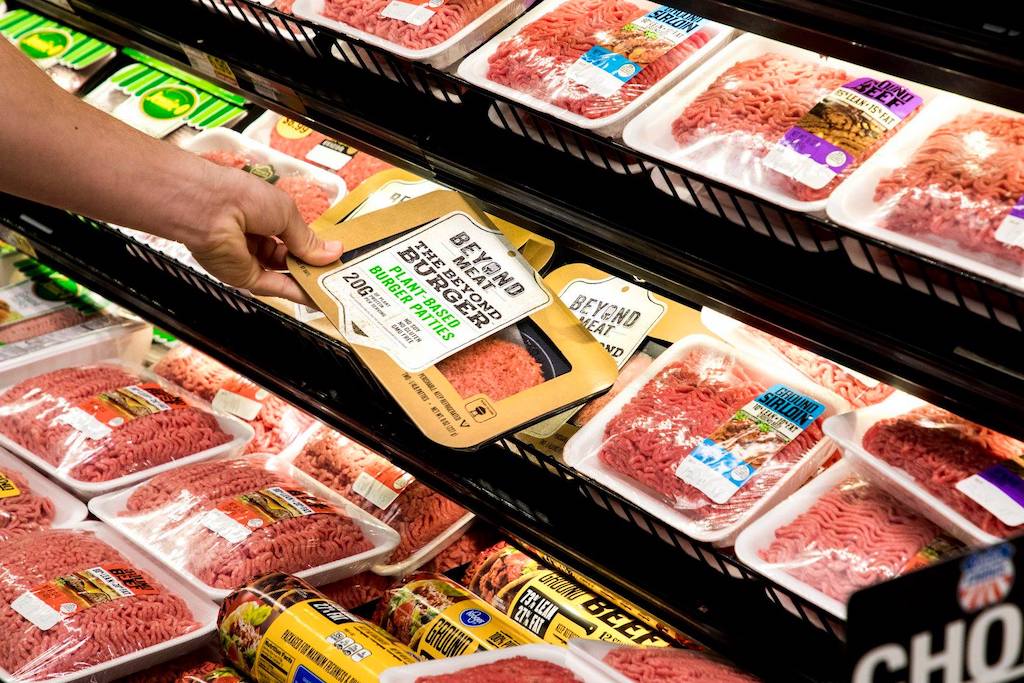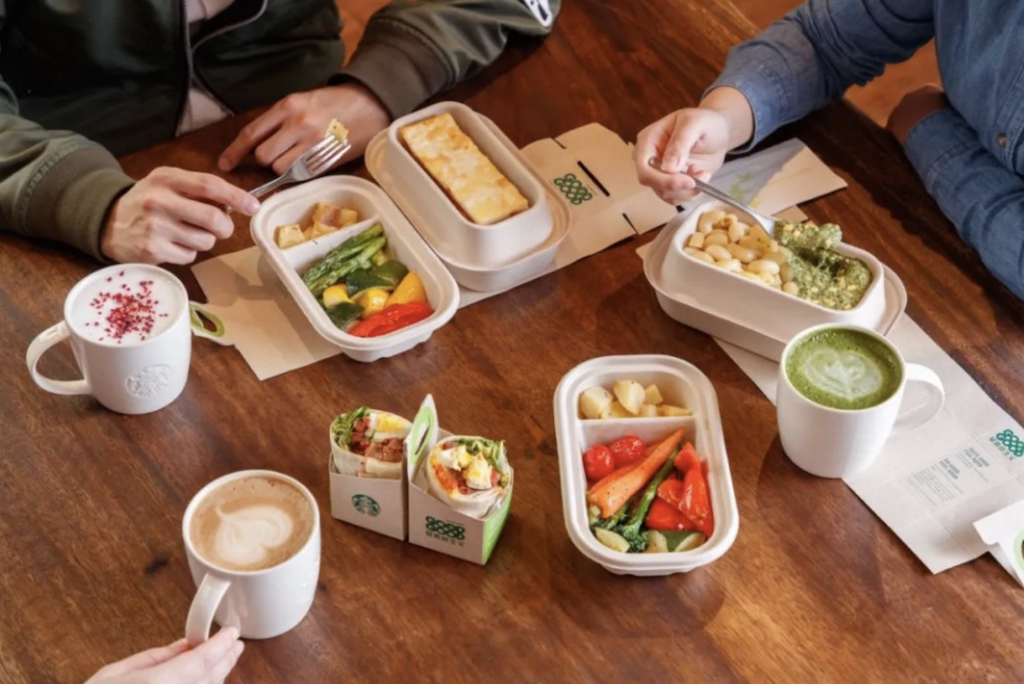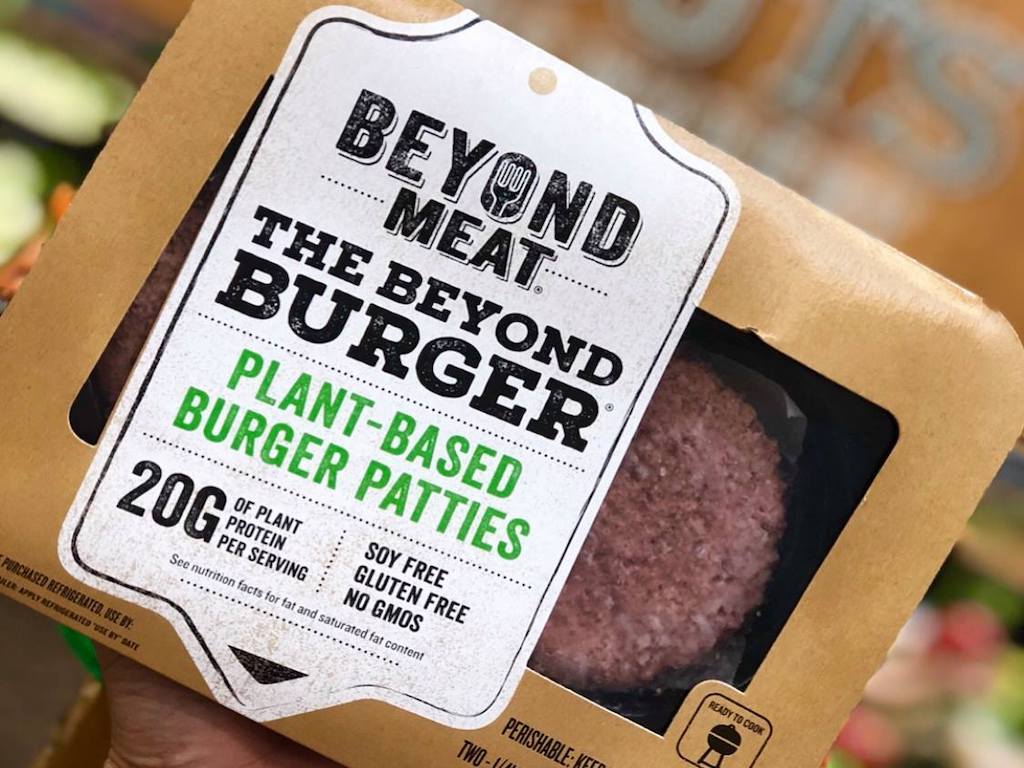3 Mins Read
Beyond Meat, the El Segundo, California-based food tech at the forefront of the plant-based industry, has just entered consumer retail in mainland China. Following its recent high-profile foodservice partnerships with Starbucks China and fast food operator Yum China, the food tech will now be collaborating with Alibaba Group’s retail platform Freshippo to roll out Beyond Meat products in supermarkets across the country.
The partnership with e-commerce giant Alibaba’s 5-year-old offline and online retail platform Freshippo will mark Beyond Meat’s first retail entry into mainland China. From this weekend onwards (July 4), Beyond Meat’s plant-based Beyond Burger patties will be launching across 50 stores in Shanghai.
After the initial launch, Beyond Meat has plans to expand Beyond Burger retail locations to 48 more Freshippo stores across Beijing and Hangzhou from September 2020 onwards. Beyond Burger patties will also be available on Freshippo’s mobile app, which offers a 30-minute online delivery service to its customers, and accounts for over 60% of the supermarket startup’s sales.
“We know that retail will be a critical part of our success in China, and we’re pleased to mark this early milestone within a few months of our market entry,” said Ethan Brown, founder and CEO of Beyond Meat, in a statement.

“We are proud to partner with Alibaba’s Freshippo, a dominant player in the retail space, to introduce our hallmark Beyond Burger to home cooks throughout China.”
Beyond Meat’s official retail entry into China comes after the startup made headlines for multiple restaurant partnerships in recent weeks. In May, alongside fellow food techs Oatly and Omnipork, Beyond Meat landed a nationwide collaboration with Starbucks to launch plant-based dishes across the chain’s over 4,300 locations in China.
Soon after, Beyond Meat announced a partnership with fast food operator Yum China to launch Beyond Meat dishes in selected KFC, Pizza Hut and Taco Bell locations. To date, Yum China owns over 9,000 locations across the country, presenting Beyond Meat with a huge opportunity to capitalise on China’s fast-growing plant-based market.
Quickly following both announcements, Brown also revealed in an investor call that the company had finalised an agreement with major Chinese distributor Sinodis, which was no doubt a crucial stepping stone for its official retail launch in the country.
The demand for plant-based meat in China and other Asian markets has been steadily growing in recent years due to raised health, safety and supply concerns prompted by the ongoing African swine fever (ASF) outbreak, but the coronavirus pandemic has further raised the profile of plant-based foods as a sustainable and crisis-resilient solution.

While on the road towards normality, the Chinese economy is still wary of sporadic outbreaks of coronavirus, and recent news about the resurgence of Div1 virus affecting shrimp farms as well as the latest fears about novel swine flu with “pandemic potential” is likely to further stimulate consumer appetite for plant-based meat alternatives.
“We have seen a growing interest in plant-based meat among our shoppers,” said Jiayu Zhao, the senior director and head of merchandising at Freshippo. “Freshippo’s new retail technology will enable plant-based meat to grow in China by meeting the modern Chinese consumer’s expectations whether they are shopping online or offline.”
For plant-based meat products such as Beyond Meat to grow in popularity in China will not only mark an important step for the country to diversify its unstable protein supply, but as the world’s most populous country, the move towards more sustainable protein will be crucial to help solve the broken global food system.
Compared to traditionally farmed meat, plant-based substitutes require far fewer resources to produce. According to a 2018 life-cycle analysis conducted by the University of Michigan, one Beyond Meat patty requires 99% less water, 93% less land, 46% less energy and emits 90% fewer greenhouse gas emissions compared to a conventional beef patty.
Want more news on Beyond Meat? Read the latest here.
All images courtesy of Beyond Meat.




